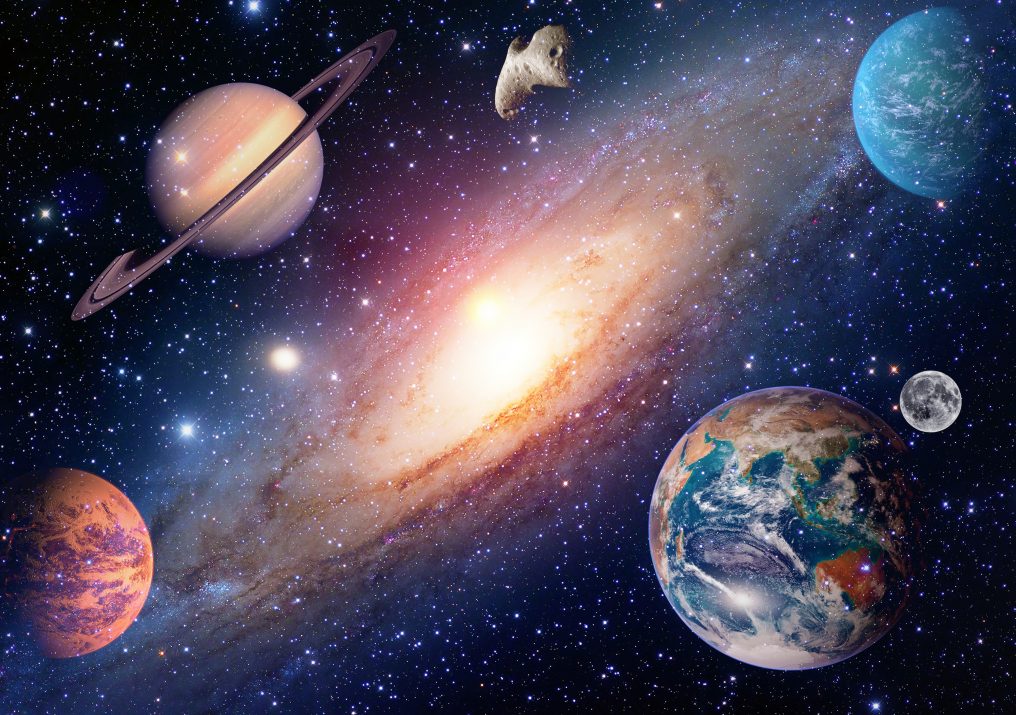
THE MOST IMPORTANT QUESTION
G.W. Leibniz said the most important question any of us could ever ask in this life is:
“Why is there something rather than nothing?”
GUIDING PRINCIPLE
Leibniz’s Principle of Sufficient Reason: “Nothing happens without a sufficient reason.”
LEIBNIZ’ COSMOLOGICAL ARGUMENT FOR GOD’S EXISTENCE
1. Everything that exists has an explanation of its existence.
2. If the universe has an explanation of its existence, that explanation is God.
3. The universe exists.
4. The universe has an explanation of its existence.
Conclusion: Therefore, the explanation of the universe’s existence is God.
PREMISE 2
In our last blog, we presented atheism’s argument against premise 1 and concluded that everything must have an explanation of its existence, either by the necessity of its own nature (necessary beings) or that it was externally caused (contingent beings).
In this blog, we want to address premise 2, which says, “If the universe has an explanation of its existence, that explanation is God.”
ATHEISM’S TWO POSSIBLE RESPONSES TO PREMISE 2
Atheists divide into two basic camps on this issue:
1. Most atheists will say that the universe is simply an inexplicable brute fact.
2. A minority of atheists will say that it is the universe, not God, that “exists necessarily” (self-existing; impossible not to exist). So according to this view, the universe would have to be the “greatest conceivable entity” in existence. In our last blog, we discussed the impact of this argument on premise 1. At the end of this blog we will address its impact on premise 2.
MAJORITY VIEW AMONG ATHEISTS REGARDING PREMISE 2
Putting the “majority view” among atheists in a simple sentence, let’s call this Statement A: “If atheism is true, the universe has NO explanation of its existence.”
CHRISTIAN RESPONSE TO ATHEISM’S MAJORITY VIEW
Putting the Christian response in a simple sentence, we’ll call this Statement B: “If the universe has an explanation of its existence, then atheism is NOT true.”
PRINCIPLE OF “LOGICAL EQUIVALENCE”
There is a principle in logic and philosophy called “logical equivalence.” We have two statements: A and B. If A is “logically equivalent” to B, this means that, “These statements are either BOTH TRUE or BOTH FALSE.” In other words, you cannot logically affirm A and deny B. If A is true, then B is true!
Atheists’ statement A that you see above is “logically equivalent” to Christians’ statement B shown above. Both statements are congruent with one another. Either both are true or both are false.
CONCLUSION REGARDING THE IDEA THAT “THE UNIVERSE IS JUST A BRUTE FACT”
We said that atheists’ statement A and Christians’ statement B are “logically equivalent” (either both true or both false):
A. “If atheism is true, the universe has NO explanation of its existence.”
B. “If the universe has an explanation of its existence, then atheism is NOT true.”
In addition, Christians’ statement B and Leibniz’ premise 2 are also logically equivalent (either both true or both false):
B. “If the universe has an explanation of its existence, then atheism is NOT true.”
2. If the universe has an explanation of its existence, that explanation is God.
Now we see that statements A, B and 2 must ALL be true or ALL be false. So which one is it? We are evaluating the majority view in atheism that says the universe is inexplicable. Examine all three statements with the assumption that each one is false. Now, look at them with the assumption that they’re all true.
It appears that they can only make sense if all three statements are true!
SO WHAT SPECIFICALLY CAUSED THE UNIVERSE TO EXIST?
“Universe” refers to all space, time, matter and energy.
So the reason for the universe’s existence must be found outside the universe (i.e., outside of space, time, matter and energy). Therefore, if something caused the universe, it must be nonphysical, immaterial, beyond space and time. There are only two things that could fit that description:
1. an unembodied mind or intelligence, or
2. an abstract object.
Abstract objects, like numbers for instance, are immaterial. One of the well-known properties of an abstract object is that it is incapable of causing anything.
So the reason for the universe’s existence must be found in this unembodied intelligence, a being whose “sufficient reason” for his existence is self-contained. In other words, God.
The only explanation for God’s existence is by reference to himself. In other words, God is a “metaphysically necessary being” who is timeless, spaceless, immaterial and uncaused.
Just as our minds have the power to cause our bodies to do things, an unembodied intelligence would have the power to act as a causal agent.
God is that unembodied intelligence and causal agent.
ATHEISM’S TWO RESPONSES
Remember that we said most atheists believe the universe is simply a brute fact, but a minority believe the universe exists necessarily (self-existing by virtue of its own necessity; impossible for it not to exist). The idea that “the universe is a brute fact” was refuted above by the logical equivalence principle and its application to statements A, B and 2.
So let’s now examine atheism’s minority view that “it would be impossible for the universe not to exist” and this view’s impact on premise 2 of Leibniz’s contingency argument.
CHRISTIANS’ RESPONSE TO THE IDEA THAT “THE UNIVERSE EXISTS NECESSARILY”
Atheists hardly ever use the argument that “the universe exists necessarily.” Why? As we look around us at things like planets, dust and radiation, none of them seem to exist necessarily. They could easily fail to exist. Both laws of nature and elementary particles could easily have been quite different from the laws and particles we presently observe. Put another way, it is easy to imagine possible universes with different laws and particles. So none of it exists necessarily, and most atheists recognize this fact.
Secondly, under the kalam cosmological argument, we established that the universe had a beginning approximately 13.8 billion years ago. Prior to that point, the universe did not exist. So the fact that it is not past eternal would be a second reason to indicate that the universe is not a necessary entity. Somehow, a prior state of affairs (i.e., Christians would say this prior state was God and his will) survived without the universe prior to 13.8 billion years ago.
CONCLUSION REGARDING PREMISE 2
The majority view among atheists that “the universe is simply an inexplicable brute fact” was refuted by the application of the logical equivalence principle to statements A, B and 2.
The minority view among atheists that “the universe exists necessarily” was refuted by our observation that the things we see in the universe could easily fail to exist. In fact, at one point 13.8 billion years ago they did not exist at all. Most atheists agree with us that this particular universe is not a necessary entity. It’s possible to conceive of many different potential universes, each with different laws and different matter, that could easily exist instead of this one.
Since both of atheism’s perspectives seem improbable, premise 2 of Leibniz’s contingency argument appears to be the most plausible remaining explanation: “If the universe has an explanation of its existence, that explanation is God.”

